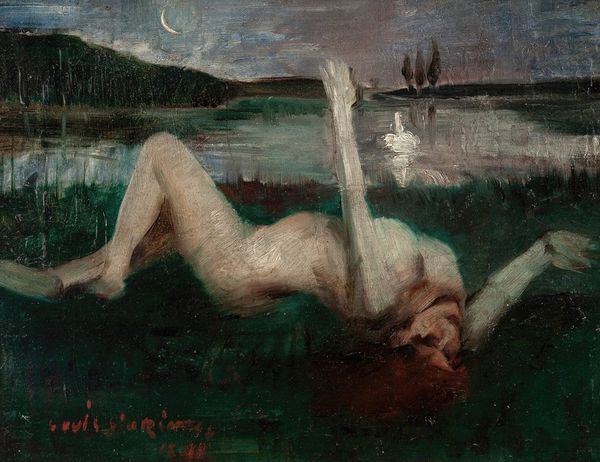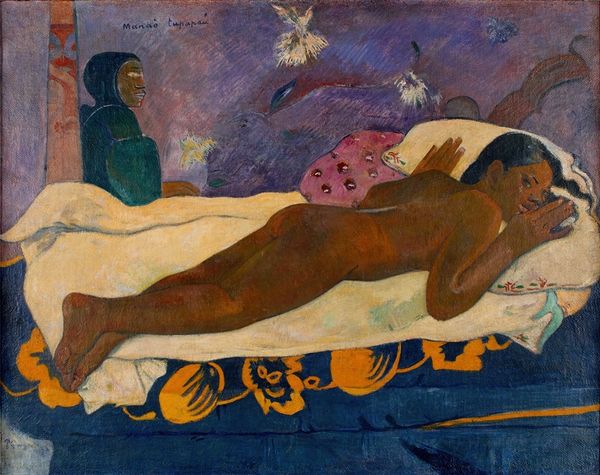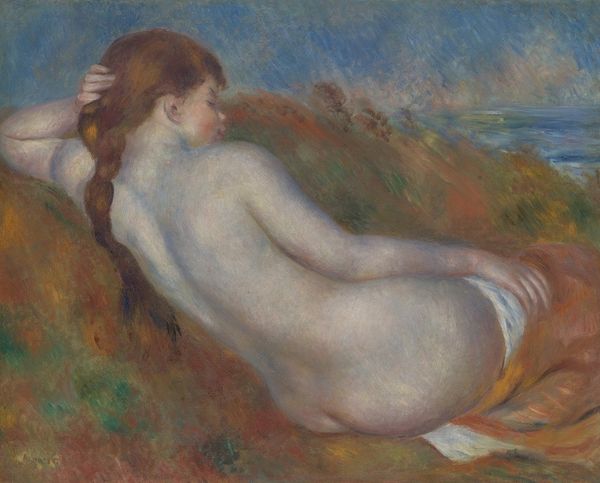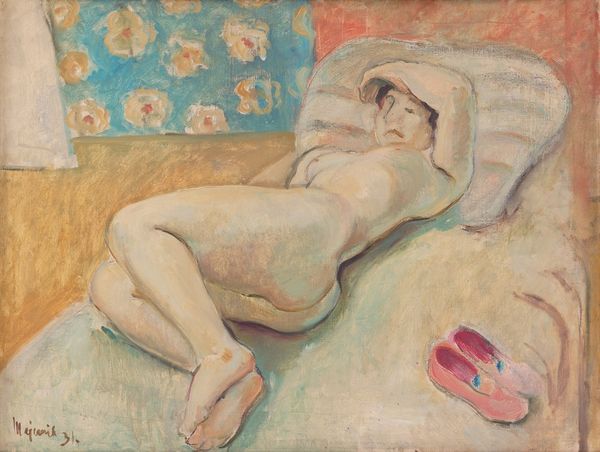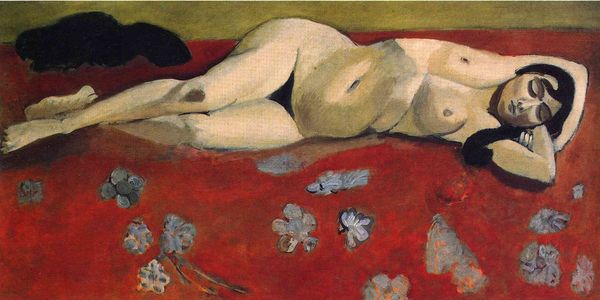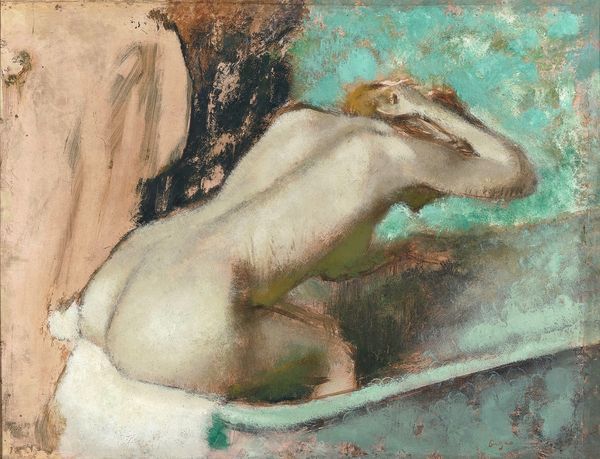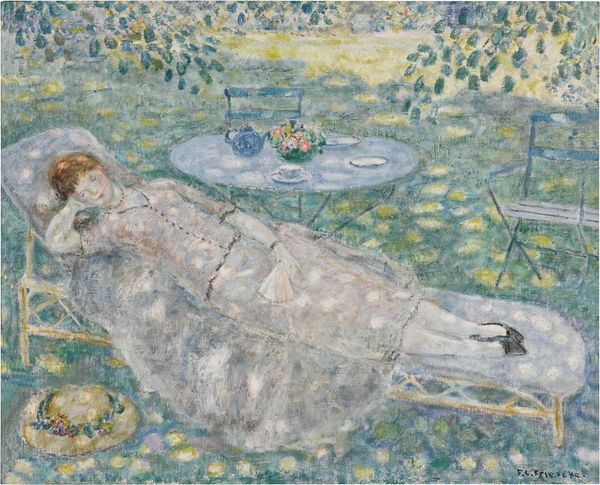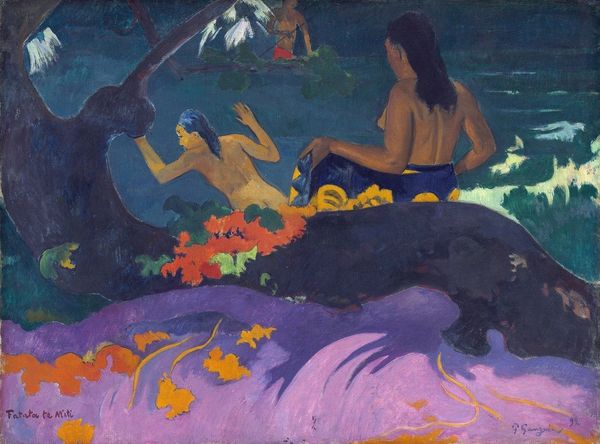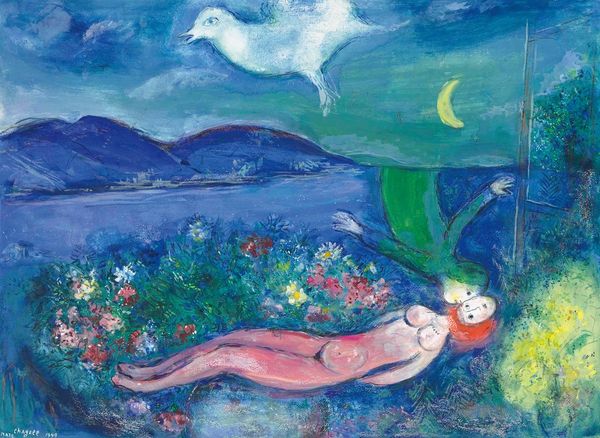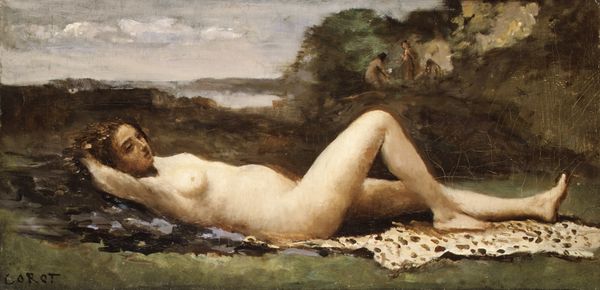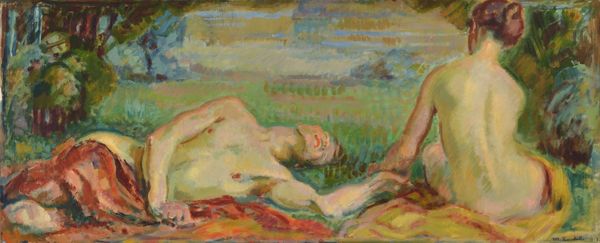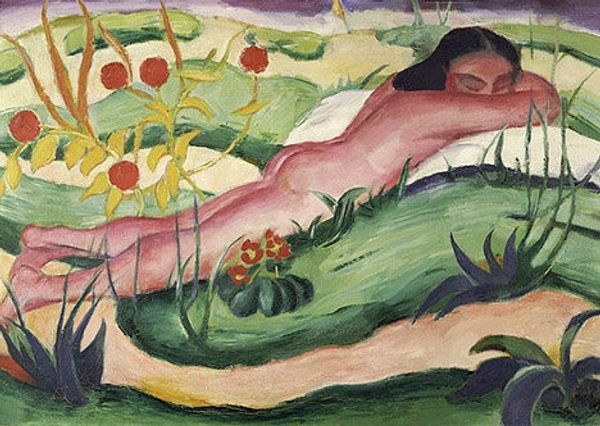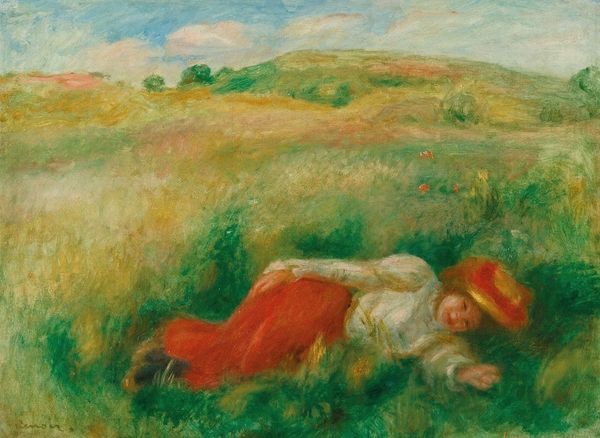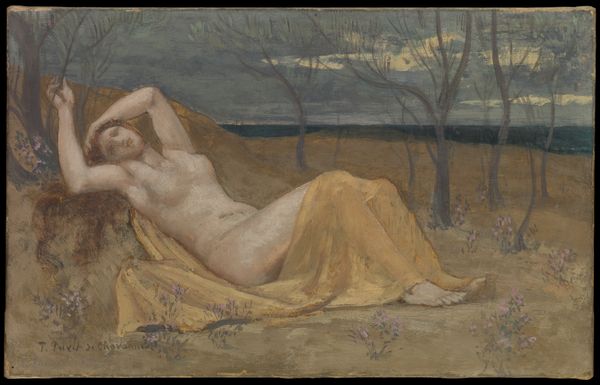
painting, oil-paint
#
painting
#
oil-paint
#
landscape
#
oil painting
#
symbolism
#
genre-painting
#
post-impressionism
#
nude
Copyright: Public Domain: Artvee
Editor: This is Paul Gauguin's "The Loss of Virginity," painted around 1890-1891. It's an oil painting that… strikes me as rather unsettling. The nude figure and strange, reddish landscape create a disquieting mood. What do you see in this piece? Curator: This work is heavily laden with socio-political and symbolic baggage. The title itself is provocative, isn’t it? Gauguin, even before his full embrace of Tahiti, was engaging with themes of primal experience and what he perceived as the corruption of Western civilization. Editor: So the loss of virginity isn't just a literal depiction, but something more metaphorical? Curator: Precisely. Consider the context: Gauguin’s work here reflects anxieties around colonialism and its effects on indigenous cultures, albeit through a very European, male gaze. How might Gauguin be commenting on the cultural impacts experienced by non-Western societies? And note that the dog-like fox on the figure; what symbolism do you ascribe to the hybridity there? Editor: Hmm… it makes me think of something animalistic or untamed lurking just beneath the surface. Is Gauguin trying to equate this "loss" with the primal or instinctual? Also what do you make of the almost processional like band of people walking across the plain above? Curator: Exactly! Gauguin's choice to include this group suggests society bearing down, a loss of individuality within the whole. The color palette, skewed and dreamlike, also speaks to a breakdown of conventional societal representations. Editor: That really recontextualizes it for me. I had focused on the somewhat unsettling figures in the foreground. Now I understand its larger cultural commentary. Curator: Indeed. This artwork showcases not merely individual experiences but profound, albeit problematic, questions about culture and progress through Gauguin's historical lens.
Comments
No comments
Be the first to comment and join the conversation on the ultimate creative platform.
